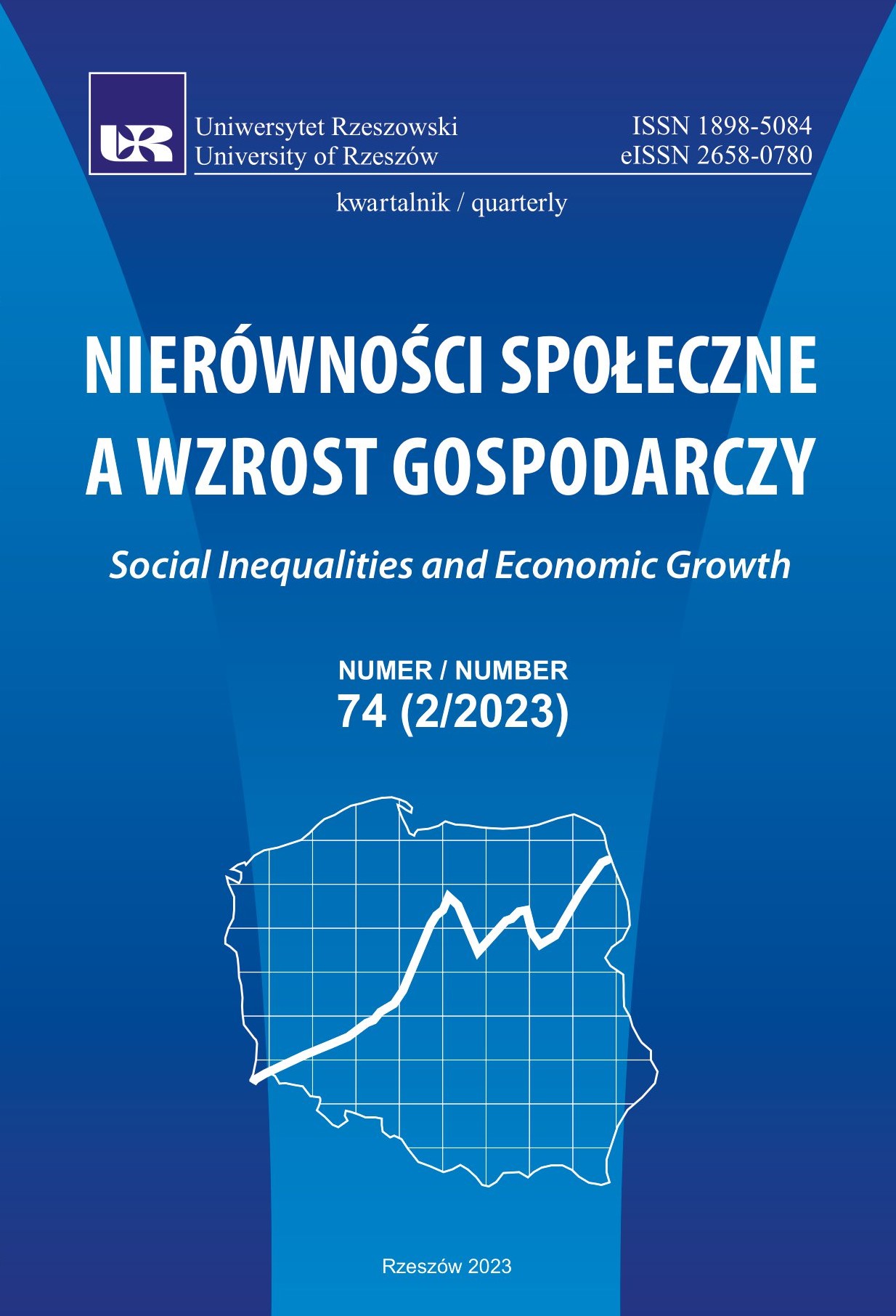Consistency concept and organisational effectiveness
DOI:
https://doi.org/10.15584/nsawg.2023.2.5Keywords:
consistency concept, harmonisation, organisational pathologies, consistency measuresAbstract
The contemporary organisational environment is characterised by turbulence, automation, robots, implementation of AI and new generations in the labour market. These characteristics make it necessary to search for ways to stay consistent. One of such ways is the implementation of the consistency concept, whose main idea is to identify consistency platforms, and therefore also the elements that comprise these platforms and the mechanisms that must be implemented to make them consistent. It is also necessary to work out the consistency measures for particular platforms. Managers who want to identify the causes of organisational pathologies must understand the consistency concept and the ways to implement it in practice. This way, a proper organisational diagnosis is possible and the many organisational pathologies resulting from the lack of consistency can be eliminated. These pathologies have different natures and many of them worsen the financial situation of organisations. They also weaken the competitive position of organisations in the long term. The reasons to present the consistency concept is the necessity to search for new ways of increasing organisational effectiveness. This necessity results from higher competition pressure. It is also necessary to build the awareness of the consistency concept and its implementation. It is also important to connect the lack of consistency with organisational pathologies. The hypothesis of the paper says that a lack of consistency results in many organisational pathologies, and these pathologies may result in a decrease of organisational effectiveness. This connection between the lack of consistency and pathologies in organisations was researched in organisations by conducting individual interviews with managers. The research results show clearly that the hypothesis is true and the lack of consistency leads to many organisational pathologies.
Downloads
References
Czerska, M., Rutka, R. (1998). Metody diagnozowania przedsiębiorstwa. Katowice: Wydawnictwo Akademii Ekonomicznej w Katowicach.
Dries, N. (2023). HRM in Turmoil Times. Human Resource Management Journal, 33 (1), 2857–2875. DOI: 10.1080/09585192.2023.2229100.
Flieger, M. (2016). Koncepcja spójności organizacyjnej. Organizacja i Zarządzanie, 2 (34), 21–30.
Flieger, M. (2019). The Consistency Concept in Management, Operational Approach. Poznań: Wydawnictwo Naukowe UAM.
Kotter, J. (2012). Leading Change. Memphis: Gulf Coast Books.
Mitoraj-Jaroszek, M. (2019). Efektywne zarządzanie pracownikami w firmie. Rezultaty przede wszystkim. Gliwice: Onepress.
Perechuda, K. (2000). Zarządzanie przedsiębiorstwem przyszłości. Warszawa: Difin.
Rummler, G., Brache, A. (2000). Podnoszenie efektywności organizacji. Warszawa: PWE.
Schein, E. (2010). Organizational Culture and Leadership, fourth edition. Zurich: Ted Nellen Publishing.
Skrzypek, E. (2002). Jakość i efektywność. Lublin: UMCS.
Sudhir, R. (2007). Change management. Concept and application. New Delhi: Tata McGraw-Hill Publishing Company.
Sułkowski, Ł. (2007). Zmiana kultury konsumpcyjnej – wyzwania dla zarządzania. Prace Naukowe Akademii Ekonomicznej we Wrocławiu, 1184, 393–398.
Downloads
Published
How to Cite
Issue
Section
License
Copyright (c) 2023 University of Rzeszow

This work is licensed under a Creative Commons Attribution-ShareAlike 4.0 International License.


